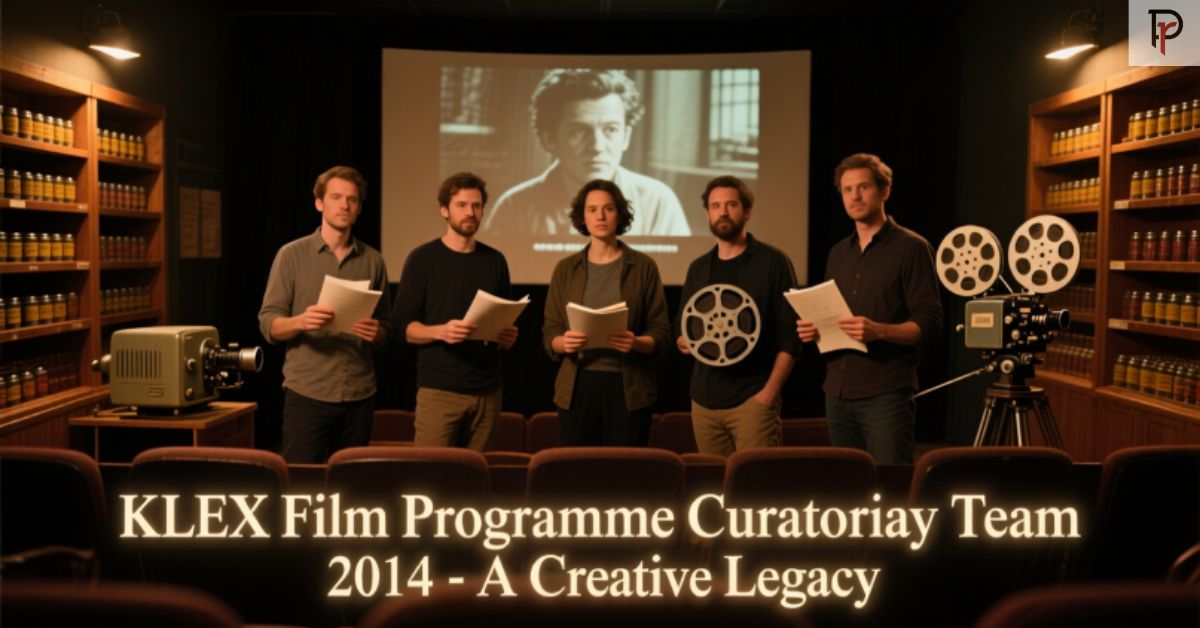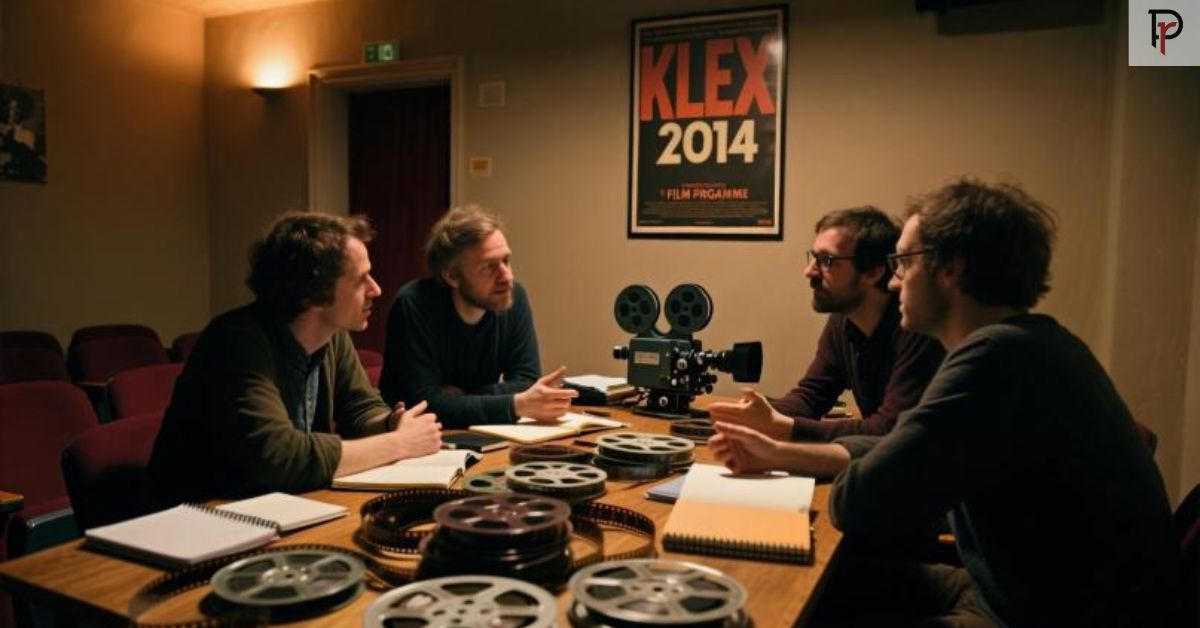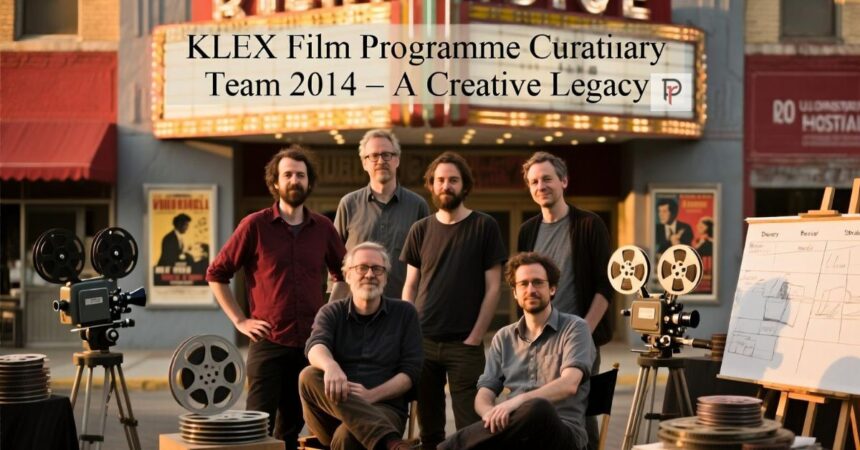The Kuala Lumpur Experimental Film, Video & Music Festival (KLEX) stands as a testament to the vibrancy of experimental arts, not just in Malaysia but globally. One of the most significant editions of this festival was in 2014, thanks to the exceptional contributions of the KLEX Film Programme Curatorial Team 2014.
Their collective expertise, vision, and dedication set a benchmark for curatorial excellence, shaping the festival into an enduring hub for creativity and experimentation. This article explores the team members, their backgrounds, and the impact they made on the 2014 edition of KLEX.
The KLEX Film Programme Curatorial Team 2014

The 2014 curatorial team of KLEX brought together a group of artists and professionals whose diverse expertise elevated the festival’s programming. The team included Andrew Stiff, Azharr Rudin, Chong Keat-Aun, and Kok Siew-Wai. Together, they crafted a film program that resonated with global and local audiences, creating a space for the exploration of experimental art forms.
Andrew Stiff
Andrew Stiff is an artist and academic with a background in painting and digital media. Having studied at the Chelsea School of Art in London and later earning his master’s at the University of Liverpool, his work explores the overlap between visual language and urban environments. At the time, Andrew was the Deputy Dean at Linton University College in Malaysia.
His research focuses on the intricacies of urban design and how physical environments influence those who inhabit them. Andrew’s artistic approach often uses moving images to capture the temporal essence of cities, reflecting the constantly shifting relationship between individuals and the spaces they occupy. For KLEX 2014, his understanding of visual language and urban rhythms enriched the festival’s narrative, adding a new dimension to the experimental films presented.
Azharr Rudin
Azharr Rudin’s career has been as unconventional as his films. Starting as a pizza maker and later dabbling in web design and photography, his creative path eventually led to filmmaking. His works have gained critical acclaim internationally, including his short film MAJIDEE (2005), which won multiple awards at festivals in Hawaii, Tokyo, and Singapore. Another of his notable projects, THE AMBER SEXALOGY, debuted at the Singapore International Film Festival in 2006.
Azharr’s feature film, PUNGGOK RINDUKAN BULAN (This Longing), premiered at the Pusan International Film Festival in 2008 and was listed as a top World Cinema film in 2008/09. Beyond his filmmaking achievements, Azharr has been a strong advocate for alternative film screenings, which he curated independently. His varied portfolio of achievements brought a fresh and layered creative perspective to the KLEX Film Programme Curatorial Team 2014, making his presence pivotal in highlighting thought-provoking narratives.
Chong Keat-Aun
Chong Keat-Aun is a multi-talented cross-cultural artist whose contributions span performing arts, radio programming, and community art projects. His passion for cultural preservation is evident in his dedication to restoring Malaysian Chinese accents and dialects, an initiative that earned him a nomination for the “Ten Outstanding Young Malaysian Awards” in 2011.
Chong’s career highlights include winning the Seri Angkasa National Award as the first Chinese broadcaster to achieve this honor. He was also invited to serve as a jury member for prestigious international film festivals, including the 29th International Fajr Film Festival in Iran. For KLEX 2014, Chong’s deep understanding of cultural dynamics brought an intricate layer of diversity to the festival, ensuring that it celebrated stories from a wide range of perspectives.
Kok Siew-Wai
Kok Siew-Wai, co-founder and director of KLEX since 2010, is a prominent voice in Malaysia’s experimental art scene. With academic credentials that include a B.A. in Media Study at SUNY Buffalo and an M.F.A. in Electronic Integrated Arts at Alfred University, Siew-Wai’s contributions to the arts are vast and significant. She has participated in renowned international festivals, including the Busan International Video Art Festival (Korea), Bangkok Experimental Film Festival (Thailand), and International Film Festival Rotterdam (Netherlands).
Siew-Wai has also co-founded independent art spaces like SiCKL (Studio in Cheras, KL) and curated influential alternative art platforms. Her leadership in KLEX 2014 was instrumental in elevating the festival to an international stage, fostering collaborations and showcasing experimental art from diverse cultural contexts.
ALSO READ THIS POST: Evil in Film and Literature Polesny – Unpacking the Complexities of Evil
The Impact of the KLEX Film Programme Curatorial Team 2014

The KLEX Film Programme Curatorial Team 2014 laid the groundwork for a truly immersive and global festival experience. The team’s varied areas of expertise allowed for a film program that connected with a broad audience while pushing the boundaries of artistic experimentation. By curating a line-up that challenged conventional forms and narratives, the team brought attention to underrepresented voices and innovative storytelling techniques.
Programming Highlights from KLEX 2014
- Global Films and Artists: KLEX 2014 featured experimental films from across continents, including Asia, Africa, Australia, Europe, and the Americas.
- Cultural Integration: The team ensured the program highlighted cultural intersections, offering fresh perspectives on identity, architecture, and memory.
- Collaborative Spirit: KLEX 2014 fostered exchanges between international and Malaysian artists, encouraging future collaborations in film, music, and visual art.
This holistic approach elevated KLEX from merely a festival to a global movement, rooted in Malaysia but resonating worldwide.
Legacy of KLEX 2014
The 2014 iteration of KLEX played a significant role in shaping the festival’s future trajectory. The curatorial team’s vision helped establish KLEX as a credible platform for experimental art, with a sustainable and far-reaching impact. Audiences and artists continue to view KLEX as a space for genuine artistic exploration, where diverse voices come together to push boundaries. This reputation can be traced back to the innovative programming led by the 2014 curatorial team.
FAQs
What does KLEX stand for?
KLEX is short for the Kuala Lumpur Experimental Film, Video & Music Festival.
How was KLEX 2014 different from previous editions?
The 2014 festival emphasized a more global and interdisciplinary approach, showcasing films and art from five continents.
What artistic focus did the 2014 curatorial team bring to the program?
The team focused on themes like urban experiences, cultural identity, and cross-disciplinary explorations in film.
Where can one access the films showcased at KLEX 2014 today?
Some films from KLEX may be archived through the official KLEX website or the individual portfolios of participating artists.
Why is KLEX significant to experimental art in Southeast Asia?
KLEX acts as a unique platform for amplifying experimental art voices in Malaysia and connecting them to global networks. It fosters creativity and intercultural dialogue.
